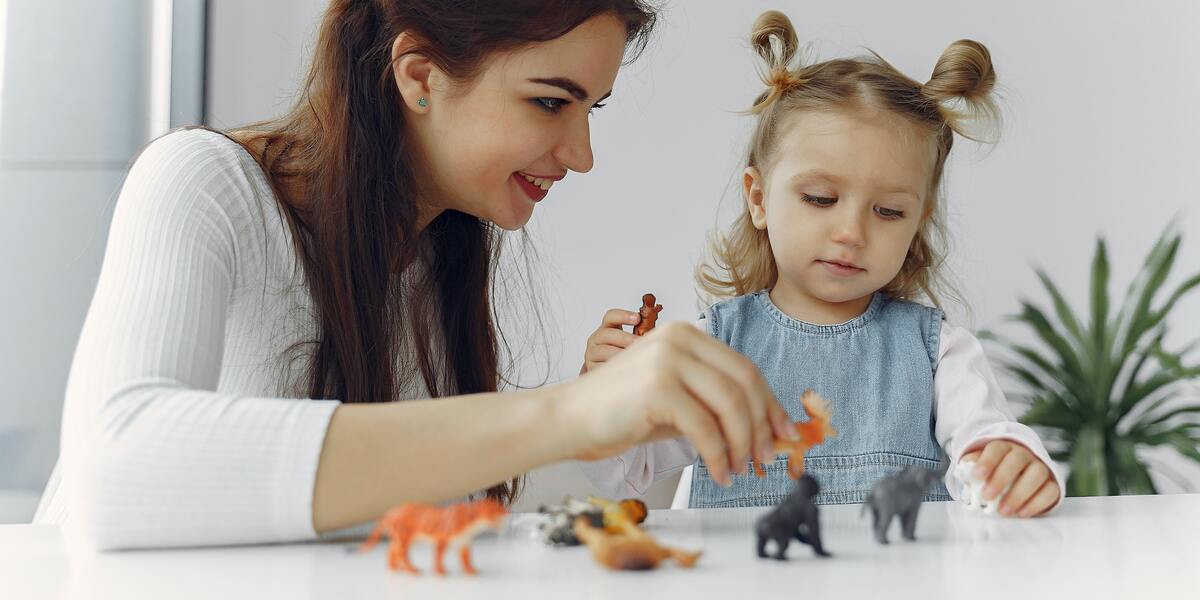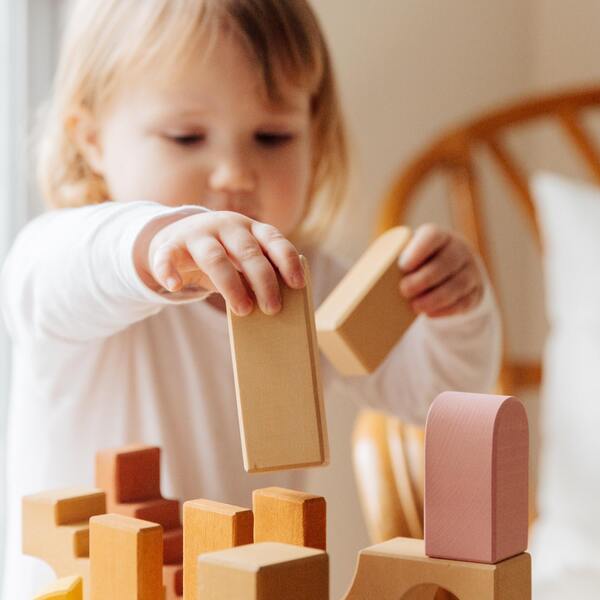
From building blocks to balancing real-life problems, a child’s journey remains full of learning and development. It all begins from the moment your little one is welcomed into the world. Observing, listening, watching, and babbling, all is a part of a baby’s development and learning. However, the biggest early teacher is a child’s play (not the movie lol). There is enough discussion and research that proves and promotes the importance of play in early childhood. So those who see play as a frivolous activity should know that it plays a major role in shaping your child’s future.
Let’s shed light on how playing has a crucial impact on kids, and how it can be made healthier for a positive happy development.
Importance of Play in Early Childhood Development
Play is not just a silly thing that kids do. It’s a magic wand that kids can do anywhere, anytime, with anyone. It makes kids curious, creative, and clever. It helps them learn new things and have fun at the same time. And guess what? It also makes kids happier and healthier now and in the future. By providing opportunities for children to play and explore, parents and caregivers can help to support kids’ conceptual learning, physical, cognitive, and social, and emotional development. So, next time you see a child playing, remember that they are not just having fun – they are also developing important skills that will shape their future.
Here is how beneficial playing is in different developmental areas of your little one:
Physical Development
Play is a great way for children to develop their physical skills, such as coordination, balance, and gross and fine motor skills. Activities such as climbing, running, jumping, and playing with balls and other toys help children strengthen their muscles and improve their physical abilities. Additionally, outdoor play provides opportunities for children to get fresh air and exercise, which is important for their overall health and well-being.
Cognitive Development
Play is also important for cognitive development, which includes things like problem-solving, creativity, and critical thinking. Through play, children learn to explore their environment and make sense of the world around them. Playing with toys and games also helps children to develop their imaginations and learn important skills such as counting, sorting, and categorizing.
Social and Emotional Development
The importance of play in early childhood should not be neglected, as it is a great way for children to develop social and emotional skills. Playing with other children helps them learn how to share, take turns, and communicate effectively. Role-playing games also help children develop empathy and emotional intelligence, as they learn to put themselves in others’ shoes and understand different perspectives. Additionally, playtime provides opportunities for children to express themselves and release pent-up emotions, which is important for their emotional well-being.
Types of Play for Early Childhood Development
Now that we know that Play is an essential part of early childhood development. It helps children learn new skills, express their emotions, and explore their creativity. There are different types of play that children can engage in, depending on their age, interests, and environment. Here are some of them:
Unstructured Play
Unstructured play is when children play freely without any rules, instructions, or goals. They use their imagination and whatever materials they have to create their own fun activities. Unstructured play can foster children’s curiosity, independence, and problem-solving skills. It can also help them cope with stress and boredom.
Structured Play
In structured play, children play with a specific purpose or objective in mind. They follow rules, instructions, or guidelines to complete a task or achieve a goal. Structured play can involve games, puzzles, crafts, or experiments. Structured play can enhance kids’ conceptual learning, cognitive, physical, and social skills. It can also help them develop self-confidence and self-discipline.
Cooperative Play
When children play with others to share ideas, resources, and responsibilities, it is called cooperative play. They work together to accomplish a common goal or enjoy a mutual activity. Cooperative play can involve role-playing, storytelling, or building something. Cooperative play can foster children’s communication, cooperation, and empathy skills. It can also help them form friendships and learn from others.
How to Encourage Play in Early Childhood
Since playing is a necessity in the adventurous world of childhood, don’t be afraid to let your child play and explore to their heart’s content. By creating a safe and stimulating environment, providing age-appropriate toys and materials, and engaging in play with your child, you’ll be setting them up for a lifetime of learning and enjoyment. So get ready to play, have fun, and watch your child grow and thrive! As a parent, you can encourage play in your child by following these tips:
Create a Safe and Stimulating Environment
It’s important to create a safe and stimulating environment for your child to play in. Make sure that the space is free from hazards and that there are plenty of interesting things for your child to explore. This could include toys, books, and sensory materials like sand, water, and play dough. Consider adding some colorful decorations and soft furnishings to create a cozy and inviting atmosphere.
Provide Age-Appropriate Toys to Learn
Providing age-appropriate educational toys and materials is key to encouraging play in early childhood. Babies and young toddlers may enjoy soft toys, rattles, and simple board books, while older toddlers and preschoolers may prefer blocks, puzzles, and art supplies. Choose toys to learn and materials that are durable and safe for your child to use, and rotate them regularly to keep playtime fresh and interesting.
Engage In Play with Your Child
One of the best ways to encourage play in early childhood is to join in the fun yourself! Engage in play with your child by getting down on their level and following their lead. This could mean building towers with blocks, playing pretend with dolls or action figures, or singing songs and dancing together. By playing with your child, you’ll be showing them the fun and importance of play in early childhood, and you’ll be strengthening your bond with them as well.
Overcoming Common Obstacles to Play
Play is essential for children’s development and well-being. It helps them learn new skills, express their emotions, and have fun. However, there are some common obstacles that can prevent children from enjoying play in their early years. Here are some tips on how to overcome them.
Lack of Time
Sometimes, children are too busy with schoolwork, homework, and other activities that they don’t have enough time to play. To avoid this, parents can set aside some time every day for free play, where children can choose what they want to do and how they want to do it. This can be indoors or outdoors, alone or with others, as long as it is safe and enjoyable.
Over-Scheduling
Another problem is that children are enrolled in too many structured activities, such as sports, music, or art classes, that leave little room for spontaneous play. While these activities can be beneficial, they can also be stressful and exhausting for children. To balance this, parents can limit the number of activities their children participate in and allow them to have some downtime to relax and play.
Parental Anxiety
Sometimes, parents are too worried about their children’s safety, health, or education that they interfere with their play. They may hover over them, give them too many instructions, or criticize their choices. This can make children feel anxious, frustrated, or bored. To avoid this, parents can trust their children’s abilities and interests and let them explore and experiment on their own. They can also join in the play sometimes, but follow the children’s lead and have fun with them.
By overcoming these obstacles, parents can help their children enjoy the benefits and importance of play in early childhood.
Conclusion
As you can see, play is not just a way to keep your child entertained and happy. It is also a powerful tool to help them develop essential skills and abilities that will shape their future. Play can boost their creativity, problem-solving, social-emotional, and physical well-being. It can also foster their curiosity, confidence, and resilience. By encouraging play in your child’s life, you are giving them the best gift possible: the opportunity to discover themselves and the world around them. So don’t hesitate to join them in their playful adventures, or to provide them with a variety of toys to learn that spark their imagination. Remember, play is not only fun, it is also fundamental. Let your child play today, and watch them grow tomorrow!

